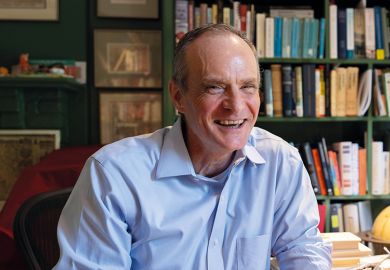There is no such thing as "easy money". Philip Coggan's book may have a misleading title - anyone expecting a guide to quick riches will be sorely disappointed - but it is still an excellent investment. This simple and very readable treatise warns everyone tempted to try to make a million that it is not as easy as the late 1990s may have led people to believe.
Among the questions Coggan answers are: why does the internet foster an "easy money" culture?; why can't we trust hot tips - why is there always a catch?; why is the widespread use of share options dangerous?; and what are the likely returns for investing in shares?
In my four decades in the investment business I found Benjamin Graham's The Intelligent Investor, first published in 1949, revised three times, and printed many more times, to be excellent and indispensable. It is as good a book of practical counsel today as it was half a century ago. The other book I always kept by my side was published much earlier: Extraordinary Popular Delusions and the Madness of Crowds by Charles Mackay. It too remains as relevant as when it was written in 1841. Easy Money, I kept thinking while reading it, is really another long chapter added to Mackay's masterpiece.
What is happening in today's financial markets would astound Graham's rational mind. In late 1999 and early 2000 ordinary investors could make unique fortunes by picking the right shares at the right time. Stocks in some small companies rose by several hundred per cent in a day. In one week in December 1999 you could have turned £11,000 into £1 million if you had invested in the small companies Culver Holdings, Lionheart, Produm Foods and Bolton International. Coggan notes that there were about 7,000 millionaires in the UK in 1983. By 1997, there were more than ten times as many - 77,000. By late 2000, Datamonitor estimated that the number had grown by a further 50 per cent. But, as Coggan also states, wealth cannot be created out of thin air. Cash or shares are simply a claim on goods and services. New and lasting wealth requires the creation of real goods and services; and it also means that the businesses that produce these goods and services must earn an economic return on the capital invested. If they do not, then "easy money" is not new wealth but a transfer of existing wealth. Those who sell their shares at the top simply take money out of the pockets of those who bought.
As markets editor of the Financial Times, Coggan knows his stuff and his history. There are some compelling facts, such as the great US investor Warren Buffet's calculation that the sum total of all airline profits since the birth of the industry is zero; and some irresistible quotes. "When people start talking about easy money it's time to keep a firm hand on your wallet." "The definition of a mine is a hole in the ground with a liar standing at the top." "The only way to make money from day trading is to write a book about it." And this one from Ralph Waldo Emerson: "The more he mentioned his honour, the faster we counted our spoons."
Dotcom mania is a classic instance of a fad, thinks Coggan. I agree. It has a jargon of its own and is therefore slightly mysterious. Its appeal is much enhanced by the fact that any investor can now discover the latest financial news at the same moment as City traders in the dealing rooms, and he or she can trade shares at the click of a mouse. The sheer newness of the internet makes it easy to be blinded by hype. If the whole world is changing, why should old-fashioned stuff like profits (or even sales) matter any more? No wonder it is much more acceptable to talk about making money than it used to be.
A thousand years ago, wealth came in the form of precious metals and jewels. Then paper currency replaced metal as the basis for wealth, although a paper note was merely a claim on real gold and silver. Now, wealth is merely an entry in a computer. The key is public confidence. Banknotes state: "I promise to pay the bearer on demand the sum of...". Today that promise is meaningless, as anyone making his demand at the Bank of England would soon find out.
The value of equities too depends crucially on confidence. Suppose everyone decided to sell theirs at the same time. No nation can make itself richer purely by buying and selling shares - any more than we can construct a viable economy simply by taking in each other's washing.
Many more books will be written and published on this alluring phenomenon, but Easy Money will remain one of the good ones. I recommend it. If nothing else, it could save you an awful lot of money.
Christopher Ondaatje is a writer, publisher and former financier.
Easy Money
Author - Philip Coggan
ISBN - 1 86197 5 X
Publisher - Profile
Price - £17.99
Pages - 177
Register to continue
Why register?
- Registration is free and only takes a moment
- Once registered, you can read 3 articles a month
- Sign up for our newsletter
Subscribe
Or subscribe for unlimited access to:
- Unlimited access to news, views, insights & reviews
- Digital editions
- Digital access to THE’s university and college rankings analysis
Already registered or a current subscriber?



